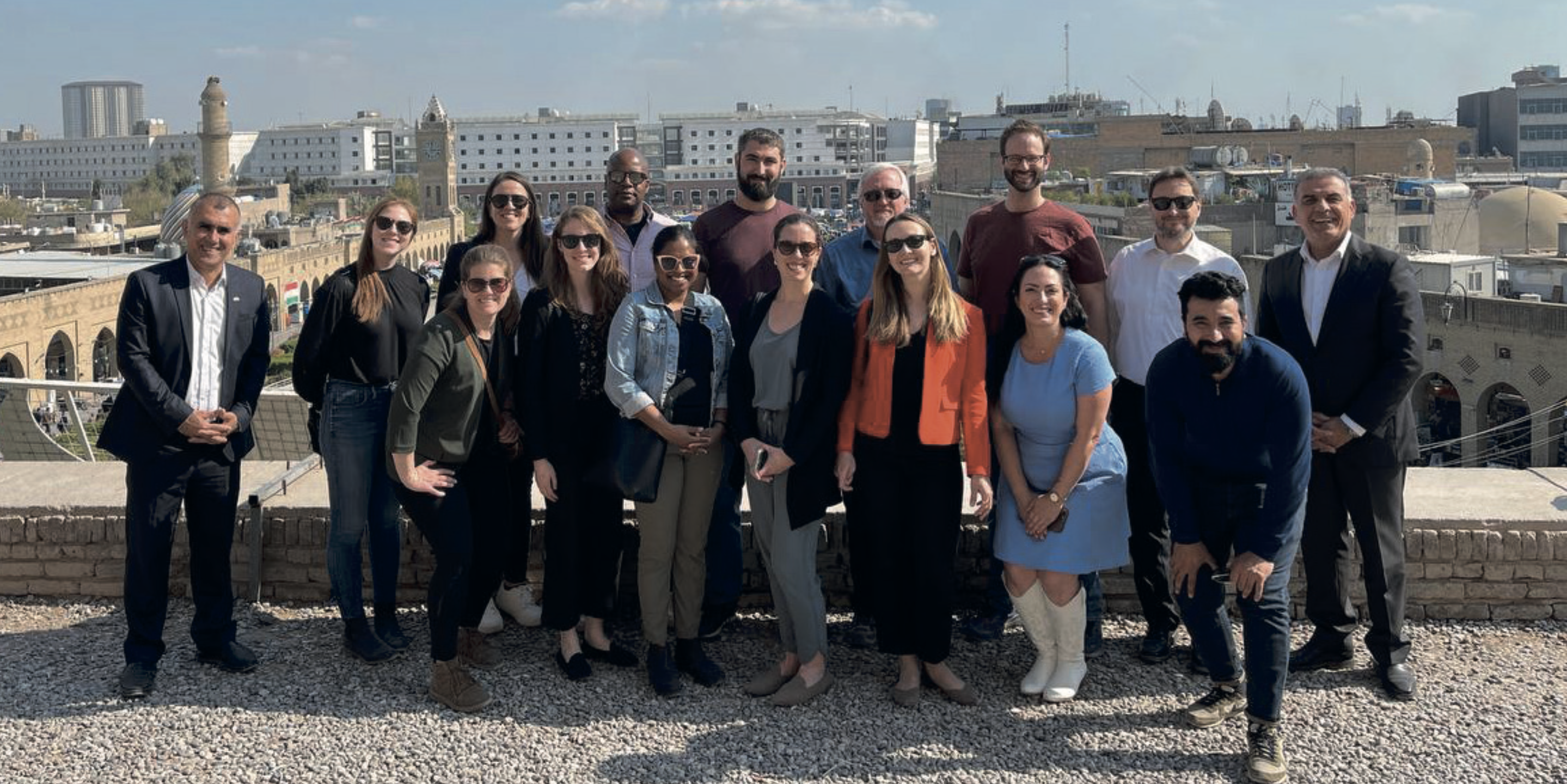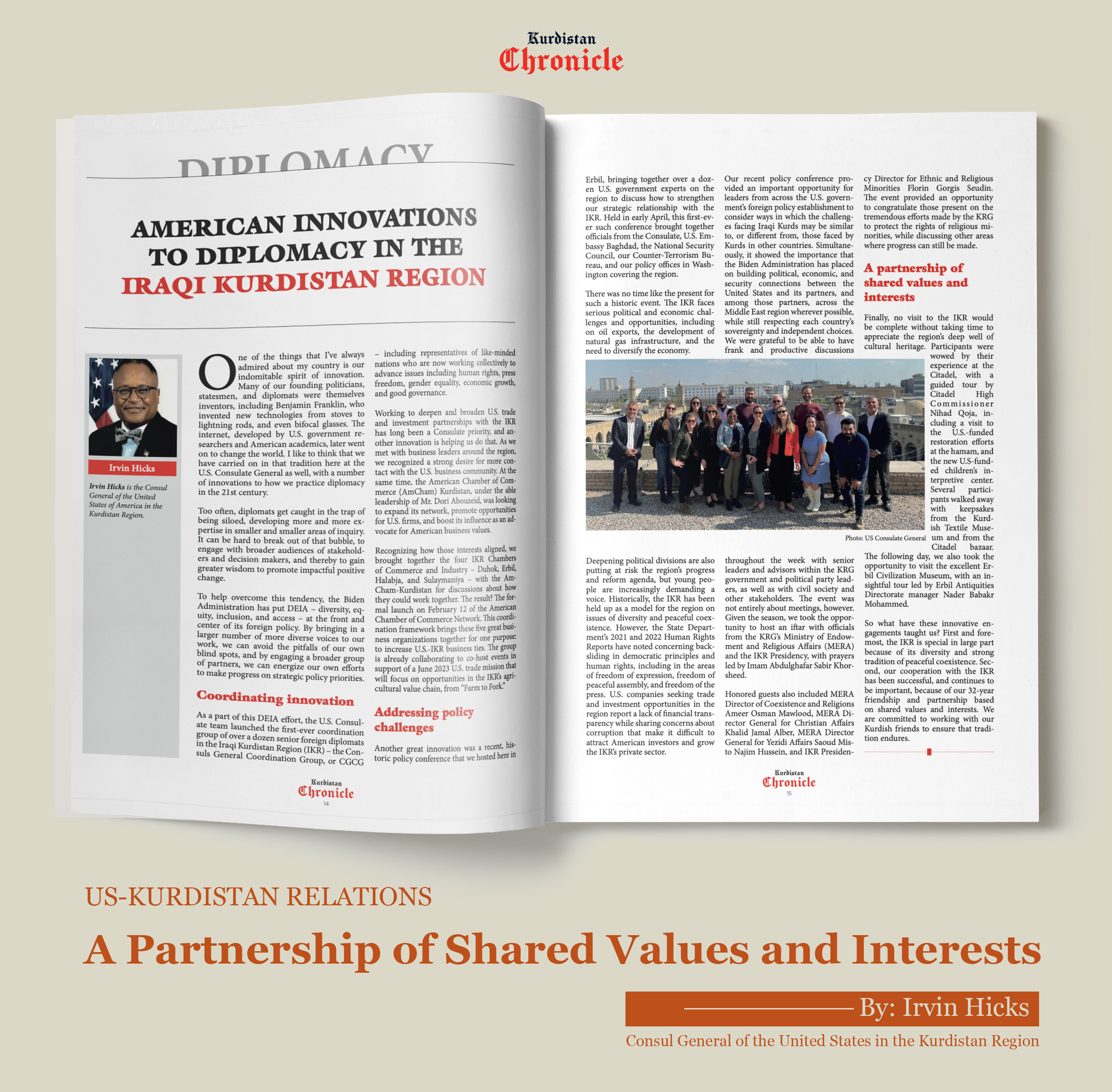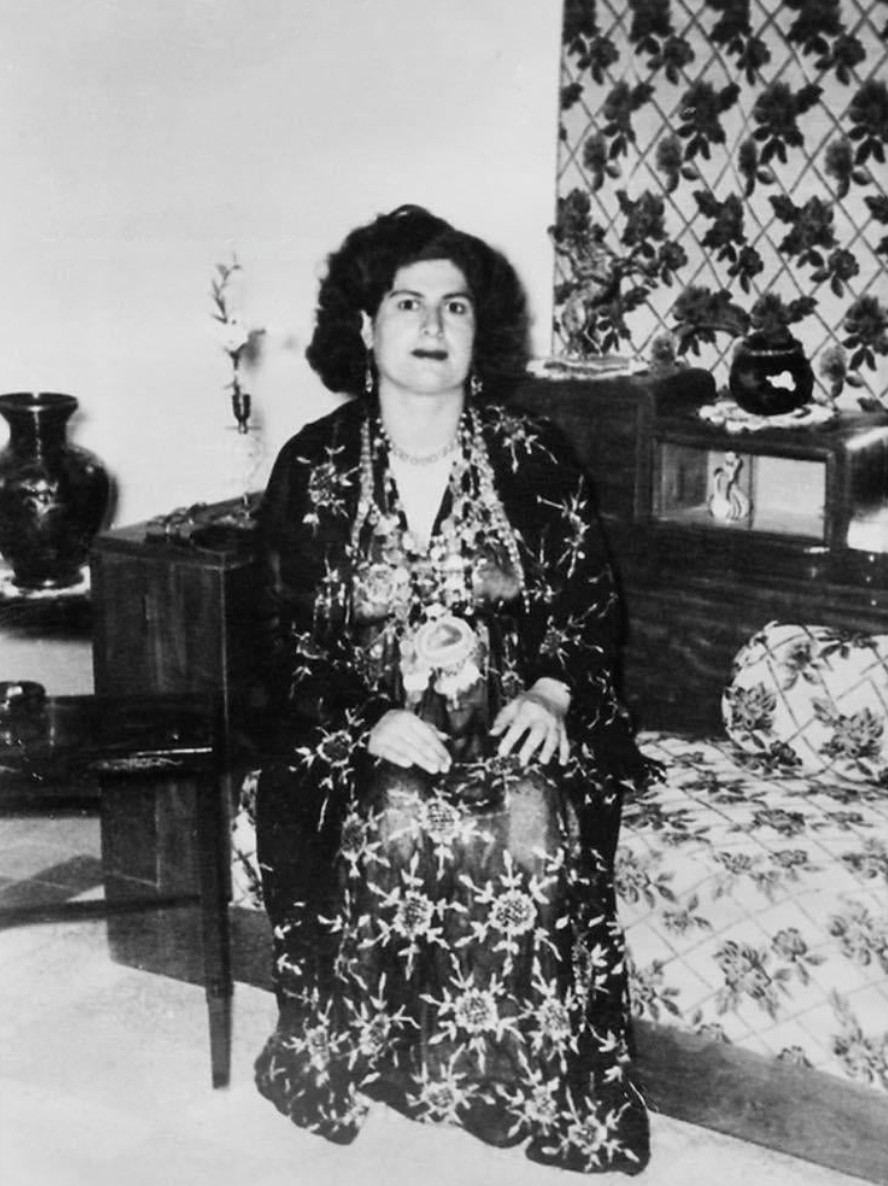One of the things that I’ve always admired about my country is our indomitable spirit of innovation. Many of our founding politicians, statesmen, and diplomats were themselves inventors, including Benjamin Franklin, who invented new technologies from stoves to lightning rods, and even bifocal glasses. The internet, developed by U.S. government researchers and American academics, later went on to change the world. I like to think that we have carried on in that tradition here at the U.S. Consulate General as well, with a number of innovations to how we practice diplomacy in the 21st century.
Too often, diplomats get caught in the trap of being siloed, developing more and more expertise in smaller and smaller areas of inquiry. It can be hard to break out of that bubble, to engage with broader audiences of stakeholders and decision makers, and thereby to gain greater wisdom to promote impactful positive change.
To help overcome this tendency, the Biden Administration has put DEIA – diversity, equity, inclusion, and access – at the front and center of its foreign policy. By bringing in a larger number of more diverse voices to our work, we can avoid the pitfalls of our own blind spots, and by engaging a broader group of partners, we can energize our own efforts to make progress on strategic policy priorities.

Coordinating innovation
As a part of this DEIA effort, the U.S. Consulate team launched the first-ever coordination group of over a dozen senior foreign diplomats in the Iraqi Kurdistan Region (IKR) – the Consuls General Coordination Group, or CGCG – including representatives of like-minded nations who are now working collectively to advance issues including human rights, press freedom, gender equality, economic growth, and good governance.
Working to deepen and broaden U.S. trade and investment partnerships with the IKR has long been a Consulate priority, and another innovation is helping us do that. As we met with business leaders around the region, we recognized a strong desire for more contact with the U.S. business community. At the same time, the American Chamber of Commerce (AmCham) Kurdistan, under the able leadership of Mr. Dori Abouzeid, was looking to expand its network, promote opportunities for U.S. firms, and boost its influence as an advocate for American business values.
Recognizing how those interests aligned, we brought together the four IKR Chambers of Commerce and Industry – Duhok, Erbil, Halabja, and Sulaymaniya – with the AmCham-Kurdistan for discussions about how they could work together. The result? The formal launch on February 12 of the American Chamber of Commerce Network. This coordination framework brings these five great business organizations together for one purpose: to increase U.S.-IKR business ties. The group is already collaborating to co-host events in support of a June 2023 U.S. trade mission that will focus on opportunities in the IKR’s agricultural value chain, from “Farm to Fork.”

Addressing policy challenges
Another great innovation was a recent, historic policy conference that we hosted here in Erbil, bringing together over a dozen U.S. government experts on the region to discuss how to strengthen our strategic relationship with the IKR. Held in early April, this first-ever such conference brought together officials from the Consulate, U.S. Embassy Baghdad, the National Security Council, our Counter-Terrorism Bureau, and our policy offices in Washington covering the region.
There was no time like the present for such a historic event. The IKR faces serious political and economic challenges and opportunities, including on oil exports, the development of natural gas infrastructure, and the need to diversify the economy.
Deepening political divisions are also putting at risk the region’s progress and reform agenda, but young people are increasingly demanding a voice. Historically, the IKR has been held up as a model for the region on issues of diversity and peaceful coexistence. However, the State Department’s 2021 and 2022 Human Rights Reports have noted concerning backsliding in democratic principles and human rights, including in the areas of freedom of expression, freedom of peaceful assembly, and freedom of the press. U.S. companies seeking trade and investment opportunities in the region report a lack of financial transparency while sharing concerns about corruption that make it difficult to attract American investors and grow the IKR’s private sector.
Our recent policy conference provided an important opportunity for leaders from across the U.S. government’s foreign policy establishment to consider ways in which the challenges facing Iraqi Kurds may be similar to, or different from, those faced by Kurds in other countries. Simultaneously, it showed the importance that the Biden Administration has placed on building political, economic, and security connections between the United States and its partners, and among those partners, across the Middle East region wherever possible, while still respecting each country’s sovereignty and independent choices.
We were grateful to be able to have frank and productive discussions throughout the week with senior leaders and advisors within the KRG government and political party leaders, as well as with civil society and other stakeholders. The event was not entirely about meetings, however. Given the season, we took the opportunity to host an iftar with officials from the KRG’s Ministry of Endowment and Religious Affairs (MERA) and the IKR Presidency, with prayers led by Imam Abdulghafar Sabir Khorsheed.
Honored guests also included MERA Director of Coexistence and Religions Ameer Osman Mawlood, MERA Director General for Christian Affairs Khalid Jamal Alber, MERA Director General for Yezidi Affairs Saoud Misto Najim Hussein, and IKR Presidency Director for Ethnic and Religious Minorities Florin Gorgis Seudin. The event provided an opportunity to congratulate those present on the tremendous efforts made by the KRG to protect the rights of religious minorities, while discussing other areas where progress can still be made.
A partnership of shared values and interests
Finally, no visit to the IKR would be complete without taking time to appreciate the region’s deep well of cultural heritage. Participants were wowed by their experience at the Citadel, with a guided tour by Citadel High Commissioner Nihad Qoja, including a visit to the U.S.-funded restoration efforts at the hamam, and the new U.S-funded children’s interpretive center. Several participants walked away with keepsakes from the Kurdish Textile Museum and from the Citadel bazaar. The following day, we also took the opportunity to visit the excellent Erbil Civilization Museum, with an insightful tour led by Erbil Antiquities Directorate manager Nader Babakr Mohammed.
So what have these innovative engagements taught us? First and foremost, the IKR is special in large part because of its diversity and strong tradition of peaceful coexistence. Second, our cooperation with the IKR has been successful, and continues to be important, because of our 32-year friendship and partnership based on shared values and interests. We are committed to working with our Kurdish friends to ensure that tradition endures.
Irvin Hicks is the Consul General of the United States of America in the Kurdistan region.

